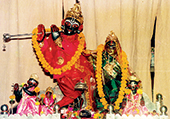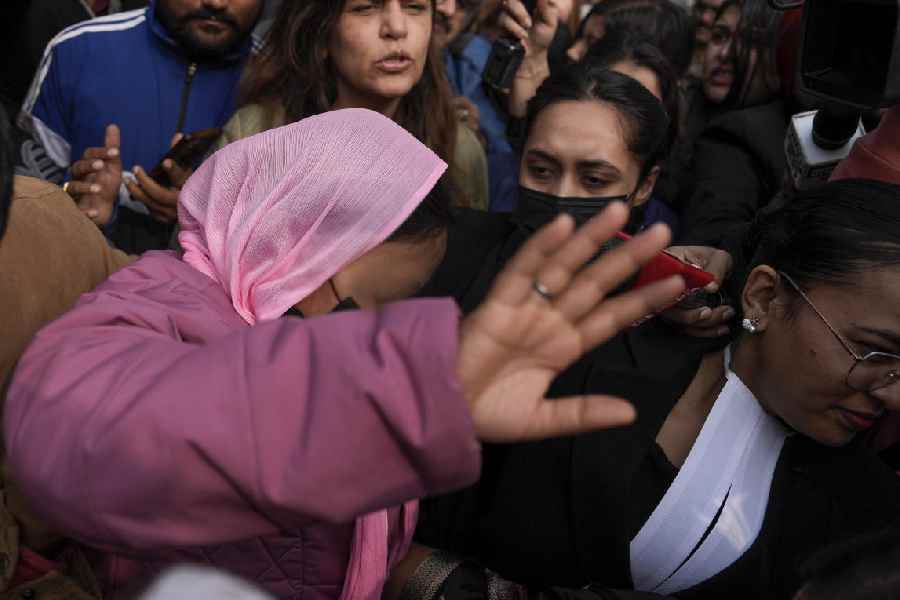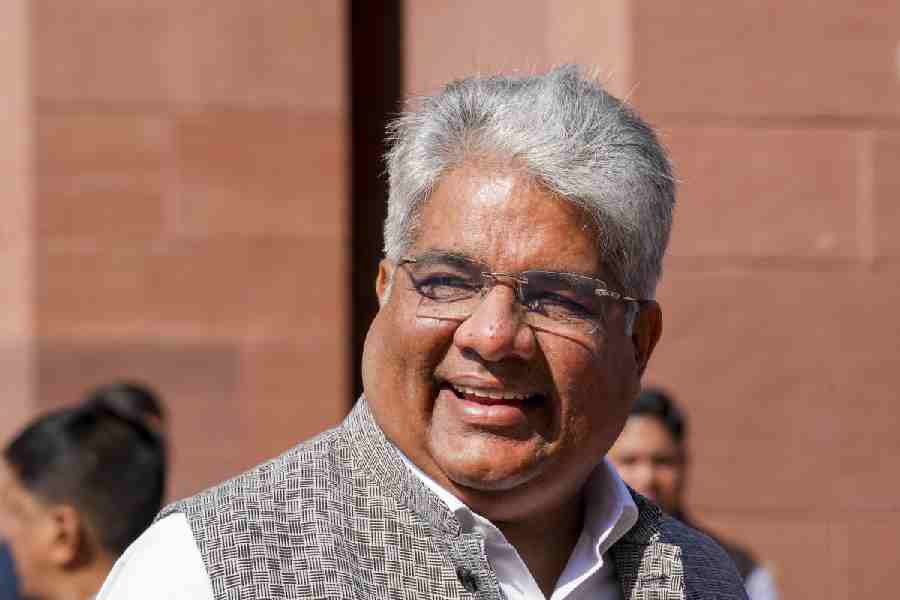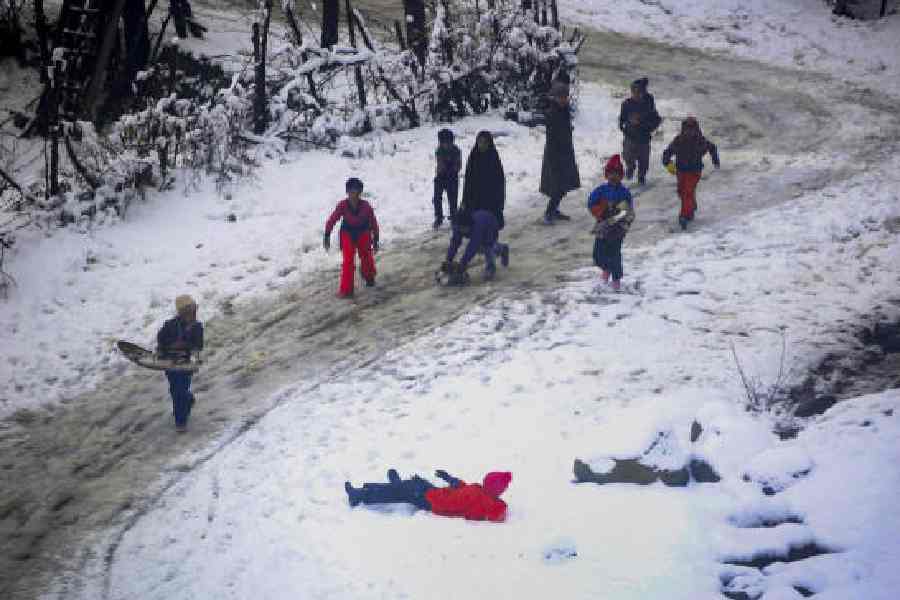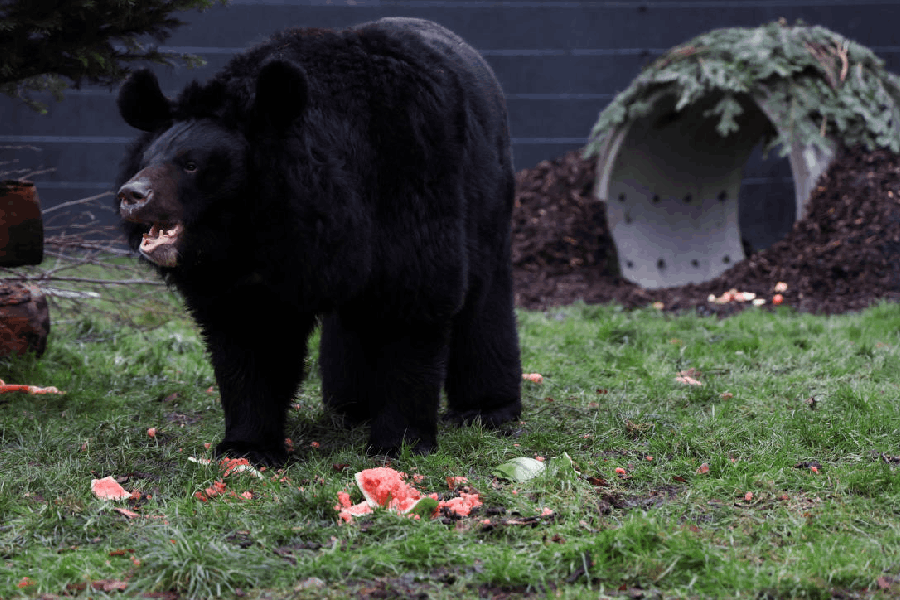 |
| The Gopinath Jeu idol at the Sovabazar Rajbari |
The family deity of Raja Nabakrishna Deb, who is known for starting Durga Puja at his Sovabazar mansion, will reach a milestone on Thursday. The idol of Gopinath Jeu was installed in the household 250 years ago.
“Gopinath Jeu’s janmayatra tithi is Baisakhi Shukla Dwadashi (the 12th day of the waxing lunar fortnight of Baisakh),” says Alok Krishna Deb, belonging to the seventh generation since Nabakrishna.
The descendants have planned four evenings of cultural programmes, featuring puratani and kabigaan among various musical genres reminiscent of Bengal’s babu period. This would be followed a week later by a day of lavish bhog prasad for family members.
The occasion warrants a look back at the idol’s curious history. Nabakrishna — who had started Durga Puja at Sovabazar in 1757, attended by East India Company sahibs celebrating their victory in the Battle of Plassey — had organised a debsabha (a gathering of deities) inviting Shyamsundar of Khardah, Radhaballav of Ballavpur, Nandadulal of Saibana, Madan Mohan of Bishnupur and Gopinath Jeu of Agradweep. Once the festival ended, all the idols were returned to the respective temples except Gopinath. Nabakrishna claimed the deity had appeared in his dream and expressed a wish to stay back.
In return, he offered to waive a loan of Rs 3 lakh owed by Raja Krishnachandra Roy, in whose domain Agradweep was.
The dispute went up to the Privy Council in London. When the verdict went against Nabakrishna, the wily man had an artisan make a duplicate idol. When Krishnachandra’s priest arrived escorted by police from Fort William, he asked him to choose.
“Though there is no record of which idol was taken back, we assume Nabakrishna was clever enough to have retained the original,” laughs Alok Krishna.
After Nabakrishna’s death, his property was divided between his adopted son Gopimohan and his natural son Rajkrishna.
“The court directed that one brother make the division and the other have the prerogative to choose. Gopimohan, being 30 years older, knew his brother well enough to place the less attractive properties with Gopinath Jeu, keeping the prime Calcutta properties on the side of another deity, Gobindaji. As expected, Rajkrishna opted for Gopinath Jeu. Only the area that comprised Sutanuti remained jointly owned,” said Alok Krishna, the keeper of the family’s historical documents.
Since then Gopinath Jeu has been worshipped daily by Rajkrishna’s descendants. “There will be 51 heads of families (with Krishna as middle name) coming together. Add to that the families of the married daughters. Members of the other branch (with Mohan as middle name) have been invited as well.”
The deity presides over the life of each family member. If Alok Krishna attributes his climbing a ladder to clean the chandeliers at 76 to Gopinath’s blessings, the married daughters phone to request a tulsi offering to the deity before every occasion at their in-laws’.
All family members carry Gopinath’s picture when they travel. “He is on my desktop at work. Also, our letters start with ‘Sri Sri Gopinath Jayati’,” adds Alok Krishna’s nephew Tirthankar Krishna, 39, who is taking part in the cultural programmes.
Some of the songs to be sung by family members date back to the late 18th and late 19th centuries. “One of them is Nabakrishna’s wish to hear the god’s name chanted at his death bed as dictated to noted kabiyaal Haru Thakur, who composed the lyrics,” says Tirthankar.
On Thursday, after day-long rituals, a lampstand bearing 250 flames will be lit in the evening and a huge sandesh on a plate of six feet diameter cut to start the celebrations. A souvenir will also be released.

